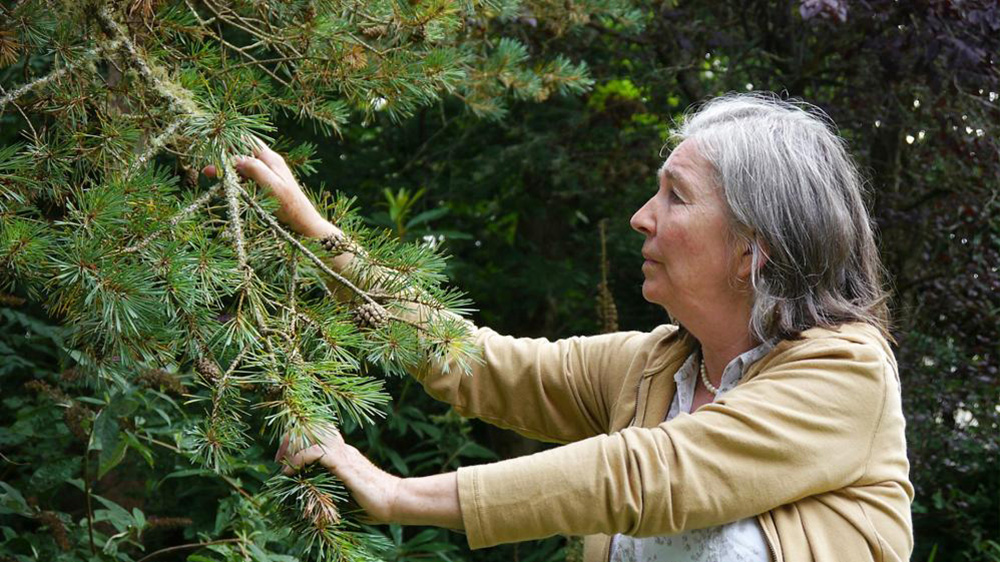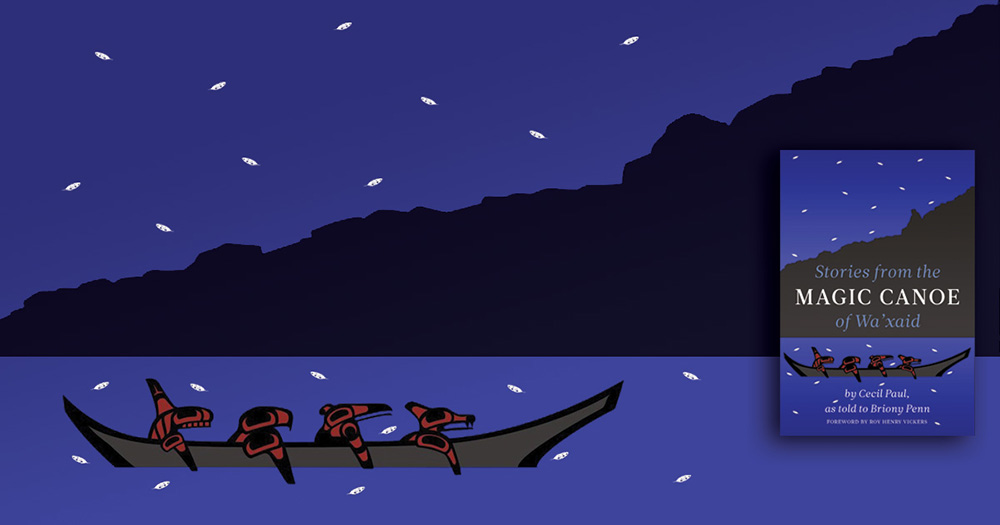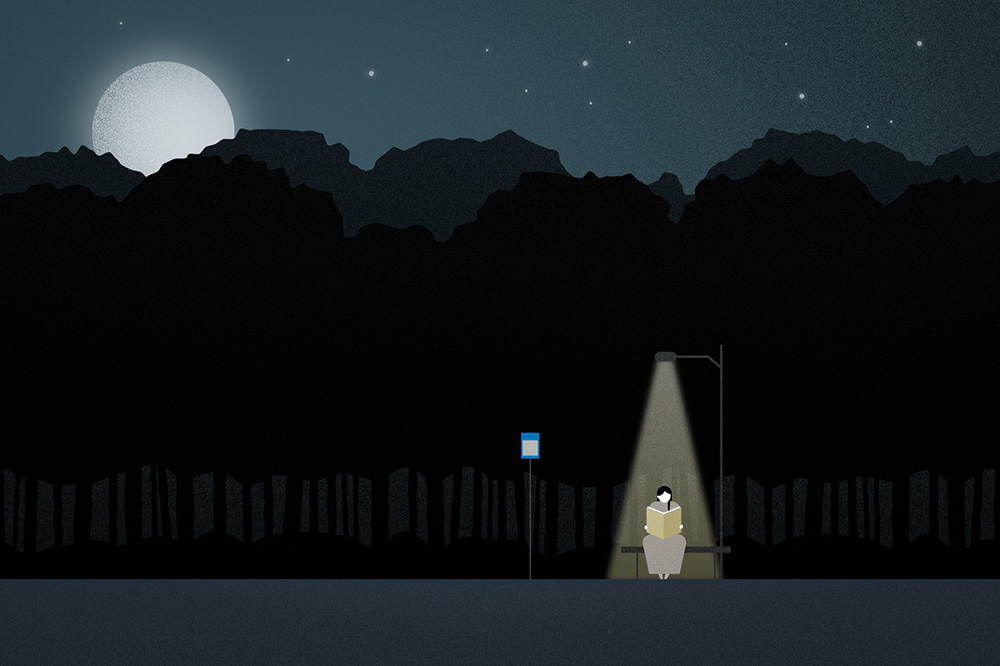“There are times in life when people must know when not to let go,” Sir Terry Pratchett once said, “Balloons are designed to teach small children this.”
Books, you might say, are designed to teach adults the same.
Pratchett, best known for his Discworld series of 41 fantasy novels, his playful vehicle to satirize our world, passed away in 2015. His work reminds that no matter how bleak the tweets and headlines, we can find deeper context, even hope, in books.
Books console, enlighten and upend. Some put forward bold solutions, while others provide momentary escape. Most are worth talking about, some recommending. We asked members of The Tyee team to share books from this woeful decade that, regardless, caused them to feel optimism. Because, yes, there’s still hope.
She Said
By Jodi Kantor and Megan Twohey
Penguin Press, 2019
Journalism still kinda works! That’s the obvious takeaway from She Said, a longer-form recounting of two New York Times reporters’ investigation into Hollywood producer Harvey Weinstein’s long history of sexually abusing women. Reporters Jodi Kantor and Meghan Twohey had to work through, and around, countless non-disclosure agreements signed by Weinstein’s victims, his protective circle, including a lot of bombastic lawyers, and the drag of inertia around challenging or changing the behaviour of powerful men. But in Weinstein’s case the truth prevailed. The work of the #MeToo movement and journalism continues, and we know it’s not over. Who’s still getting hurt? Who’s still being protected? Knowing we have reporters like Kantor and Twohey, and many more around the world dedicated to seeking and telling the truth, gives me hope that the bad guys will continue to fall. — Robyn Smith
Factfulness: Ten Reasons We’re Wrong About the World — And Why Things Are Better Than You Think
By Hans Rosling with Ola Rosling and Anna Rosling Rönnlund
Flatiron Books, 2018
Hans Rosling, a Swedish public health expert, wrote this book while dying of pancreatic cancer, yet he’s startlingly hopeful. He argues that much of what we think we know is outdated or plain wrong. (His quiz will embarrass you.) With current, correct data, the world looks surprisingly good. All the more reason to make it even better. — Crawford Kilian
How to Kill a City: Gentrification, Inequality and the Fight for the Neighborhood
By P. E. Moskowitz
Nation Books, 2017
We all know the mainstream story about gentrification: artists and activists move into a cheap neighbourhood, soon there are hip cafes and art galleries, and then come the banks and condos. This book was a revelation to me, because it showed how this story serves the financial interests of investors and developers, who in city after city across North America have quietly pushed for policy changes that cause massive displacement and unaffordability. How to Kill a City is not optimistic in the traditional sense, but by revealing in precise detail the true drivers of gentrification, it allowed me to feel a sense of agency about an issue that has always stirred in me feelings of guilt — and these days I’m willing to call that hope. — Geoff Dembicki

The Global Forest
By Diana Beresford-Kroeger
Penguin Books, 2010
Few books are as magical and wise as The Global Forest. Diana Beresford-Kroeger, one the Canada’s great scientific treasures, mixes grand science with Celtic storytelling to present a stunning series of short essays on the value of trees. Little escapes her attention. She writes wonderfully about the ability of trees to communicate by infrasound. And she explains the chemistry that occurs when Aboriginals burned the branches of white pine to ease sadness. In language as brilliant as Celtic poetry, Beresford-Kroeger salutes the forest as our much-neglected global workhorse that keeps us supplied with oxygen. Her book does for forests what Rachel Carson did for the ocean with The Sea Around Us. Reading this short book is almost as revitalizing as a long walk in a cedar wood. — Andrew Nikiforuk
Speaking Our Truth: A Journey of Reconciliation
By Monique Gray Smith
Orca Book Publishers, 2017
It’s been 19 years since I first recall hearing about Canada’s residential school system in Grade 10. It took up less than a page of my social studies textbook. Racism and colonial denial aside, my education was stunted because the systematic genocide of Indigenous people through the theft and abuse of their children is an incredibly daunting conversation for adults to have with kids. Yet talking to kids about genocide can and should be done. Which is why Speaking Our Truth gives me hope for the future. Aimed at 9-13 years olds, the picture-heavy book lays out in clear, simple and age-appropriate terms the history of relations between Indigenous peoples and settlers, from first contact and residential schools, to the Truth and Reconciliation Commission. It’s a heavy topic. In the wrong hands, it could devastate young readers. But Gray Smith focuses on the light: how young people are as vital to furthering reconciliation in Canada as love, empathy and acts of kindness are. Indigenous children continue to face government-imposed barriers to health and happiness, but Speaking Our Truth makes clear to readers young and old: every child matters. If we want to ensure we never repeat the mistakes of our past, showing them we care means telling them the truth. — Katie Hyslop
Say Nothing: A True Story of Murder and Mayhem in Northern Ireland
By Patrick Radden Keefe
Doubleday, 2019
C. S. Lewis once wrote that if you look for truth, you may find comfort in the end but “if you look for comfort you will not get either comfort or truth only soft soap and wishful thinking to begin, and in the end, despair.” Keefe’s riveting book on the so-called Troubles in Northern Ireland never strays from the truth. He starts with the mysterious disappearance of Jean McConville, the mother of ten children in 1972 in Belfast. Under that criminal canopy, he explores the bloody struggle that divided Protestants and Catholics for nearly three decades. He details the betrayals of the IRA, the machinations of the British intelligence operatives and the daily carnage. In the end he peels back the revolutionary curtains of hubris and details what happens when the violence ends. Few writers have explored that bitter grief and haunted consciences of killers as honestly as Radden. A luminous book. — Andrew Nikiforuk
This Changes Everything
By Naomi Klein
Knopf Canada, 2014
I wish it had. When Naomi Klein’s book-cum-manifesto came out in 2014. I read it feverishly, all 566 pages. Almost five years later, many of the things that Klein wrote about are profoundly worse. So, why does her book still make me feel hopeful? Only this. On page 466, Klein wrote that when the forces of history come knocking, you want to say that you answered the damn door. Klein might not get everything right, but the woman answered the door, actually she threw it wide open, and went charging into the street. Whether it’s eighty-two-year-old actress Jane Fonda, who cited Klein’s book for inspiring her to acts of civil disobedience, or a young schoolgirl, sitting alone outside of the Swedish parliament, Klein’s work galvanized action and gave hope to others. I thought about This Changes Everything during the recent Climate March in Vancouver, surrounded by groups of teenagers, chanting, screaming and waving their homemade signs. On the other side of the country, Greta Thunberg was marching with kids in Montreal. My son Louis texted me from the middle of the action, “There’s so many people here!” But before you get to millions of people in the street, sometimes there’s just one person in a room, tip-tapping away on their computer, arranging massive amounts of complex data and years of research into tight, cogent, knockdown arguments. It’s this hard and solitary work that gives me hope. — Dorothy Woodend

Stories from the Magic Canoe of Wa’xaid
By Cecil Paul, as told by Briony Penn (foreword by Roy Henry Vickers)
Rocky Mountain Books, 2019
Cecil Paul will tell you in this book: “My name is Wa’xaid, given to me by my people. ‘Wa’ is ‘the river’, ‘Xaid’ is ‘good’ — good river. Sometimes the river is not good. I am a Xenaksiala, I am from the Killer Whale Clan. I would like to walk with you in Xenaksiala lands. Where I will take you is the place of my birth. They call it the Kitlope. It is called Xesdu’wäxw (Huschduwaschdu) for ‘blue, milky, glacial water.’” To read the book is one kind of act of hope, because the book is so clearly a collaboration. Wa’xaid told his stories to others, including Briony Penn, a settler, who transcribed and extensively annotated them, and then they were published by Rocky Mountain Books, itself run by settlers. The hope is that Wa’xaid’s truths are amplified and not bent by the collaboration that publishing such a book in Canada requires. The hope is that Wa’xaid has in Penn and the publisher models of how other settlers might ally with Indigenous people making their case for ending colonization. Wa’xaid is a heroic figure. He triumphed in his shared fight to preserve the Kitlope, said to be the largest remaining protected unlogged temperate rainforest. His frank and vivid stories of battling demons within as well as forces who would clear cut his land have lingered in my heart. The Magic Canoe felt the product of good faith, the stuff of hope. — David Beers
Dear Life
By Alice Munro
McClelland & Stewart, 2012
It wasn’t all bad news this decade. Alice Munro won the Nobel Prize! It was heartening to see attention paid to a writer whose virtues are of a kind rarely celebrated: a quiet dedication to craft, a lack of interest in cultivating her own celebrity, and generosity towards fellow artists (having won Canada’s top fiction prize twice, she withdrew her books from Giller consideration, thinking it was time to give younger writers a chance). True, the literary Nobel Committee has lost its mystique, like many an institution in recent years. But in a Munro story, fate is never fixed, and even the anti-hero can be redeemed. Dear Life, her final collection, is as consistently excellent as her body of work, filled with truths about what makes us human, what it means to be alive. — Deborah Campbell
Are We Screwed?
By Geoff Dembicki
Bloomsbury USA, 2017
The subtitle of this book promises to show “How a New Generation is Fighting to Survive Climate Change” and The Tyee’s own Geoff Dembicki delivers, drawing on past reporting ranging from Washington, D.C. to Kitimat, B.C. Along the way we meet the powerful, experts and, most inspiring, young people taking to the barricades or back country homesteads in response to the rising threat. Nothing is sugar coated. Neither does Dembicki swallow the scoffers’ message that fighting for a better future is deluded. — David Beers
They Can’t Kill Us All
By Wesley Lowery
Little, Brown and Company, 2016
While the police violence and killings behind Washington Post reporter Wesley Lowery’s They Can’t Kill Us All make for a heartbreaking and terrifying read, and as the important conversations these happenings sparked have receded sharply into the political background, this sober account of the protests in cities like Ferguson, Cleveland and Baltimore and the larger unrelenting push for racial justice is also the story of how everyday people — many of them young, many of them marginalized, many of them black — stood up to challenge a systemic injustice and led arguably the most significant mass movement of the 2010s. It’s also an interesting and self-aware meditation on objectivity in journalism, reporting in the digital media age and how to tell the stories of communities that have been historically misrepresented by the media. — Olamide Olaniyan
Immoderate Greatness
By William Ophuls
CreateSpace, 2012
Edward Gibbon once wrote that the decline of the Roman Empire “was the natural and inevitable effect of immoderate greatness.” And that’s exactly where our high-energy civilization now teeters according to William Ophuls. This brief and brilliant essay on why civilizations fall apart is a delightful tonic to the daily bullshit shoveled by the status quo. Every day they claim that technology will save us from murderous elites, moral decay, bankrupt governments, disenfranchised citizens and radical climate change. But the main problem is this: civilization has gotten too big, corrupt and complex to manage. Moreover history shows that big complex institutions do fail, and dramatically so. It is the way of the world. Although collapse may be ordained, its timing remains unpredictable. Civilization, of course, could abandon its addiction to greatness in favor of simplicity, frugality and fraternity. But the “pursuit of greatness is always a manifestation of hubris, and hubris is always punished by nemesis.” A book that calmly explains the real state of things prepares the mind for what’s to come. — Andrew Nikiforuk
The Lifespan of a Fact
By John D'Agata and Jim Fingal
W.W. Norton & Company, 2012
Ever felt like you were eavesdropping on a tense, snarky fight, but it was so interesting you just couldn’t pull your ears away? That’s how I read The Lifespan of a Fact, which takes us through seven years of combative correspondence between John D’Agata, the author of an essay on the death of a teen in Las Vegas, and Jim Fingal, his nosey fact-checker. The dialog on contemporary conversations surrounding ‘truth,’ ‘fact’ and ‘creative non-fiction,’ in the tradition of ancient philosophy. This book gives me hope because it reminds me that the lines between truth and fact, between art and artifice, are inherently blurry. Crossing these lines should be painful, but it’s also exhilarating. The book’s anecdotal justifications for stretching the truth seem increasingly precarious as we move further into the era of post-truth politics. But they also give grounds for why we feel so compelled to fictionalize reality. Regardless, in this quest for answers, D'Agata and Fingal show the truth for what it is: a construct. That still doesn’t give us leeway to concoct distortions. — Priya Bhat
What book has given you hope? Please share it in a comment below. ![]()
Read more: Indigenous, Rights + Justice, Media, Environment
















Tyee Commenting Guidelines
Comments that violate guidelines risk being deleted, and violations may result in a temporary or permanent user ban. Maintain the spirit of good conversation to stay in the discussion.
*Please note The Tyee is not a forum for spreading misinformation about COVID-19, denying its existence or minimizing its risk to public health.
Do:
Do not: